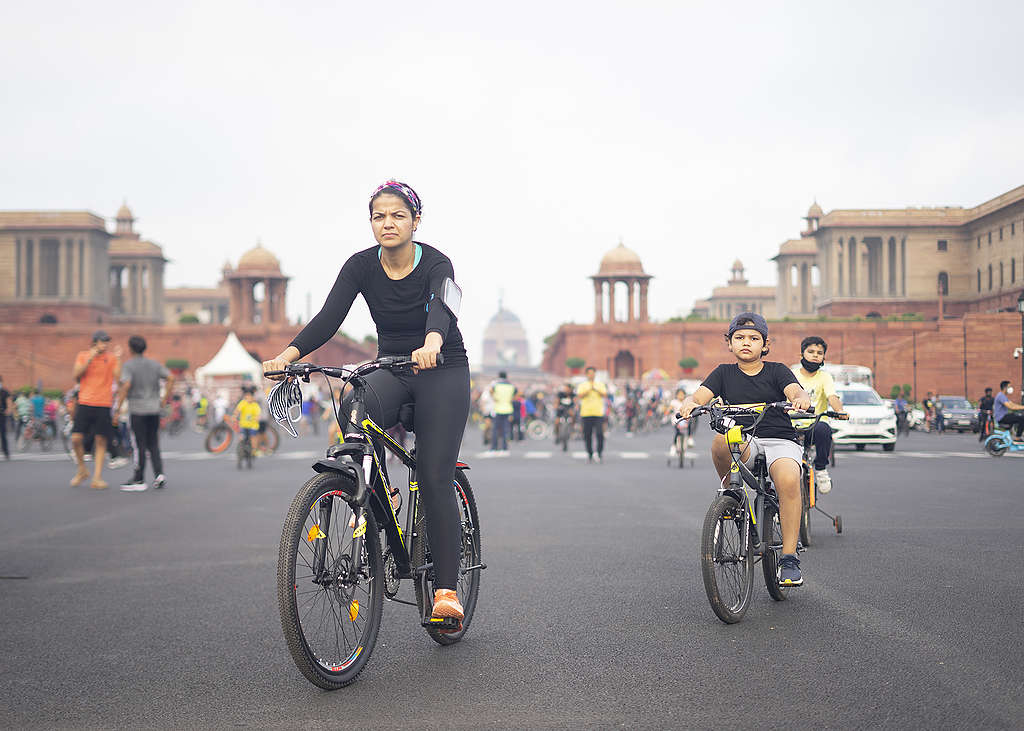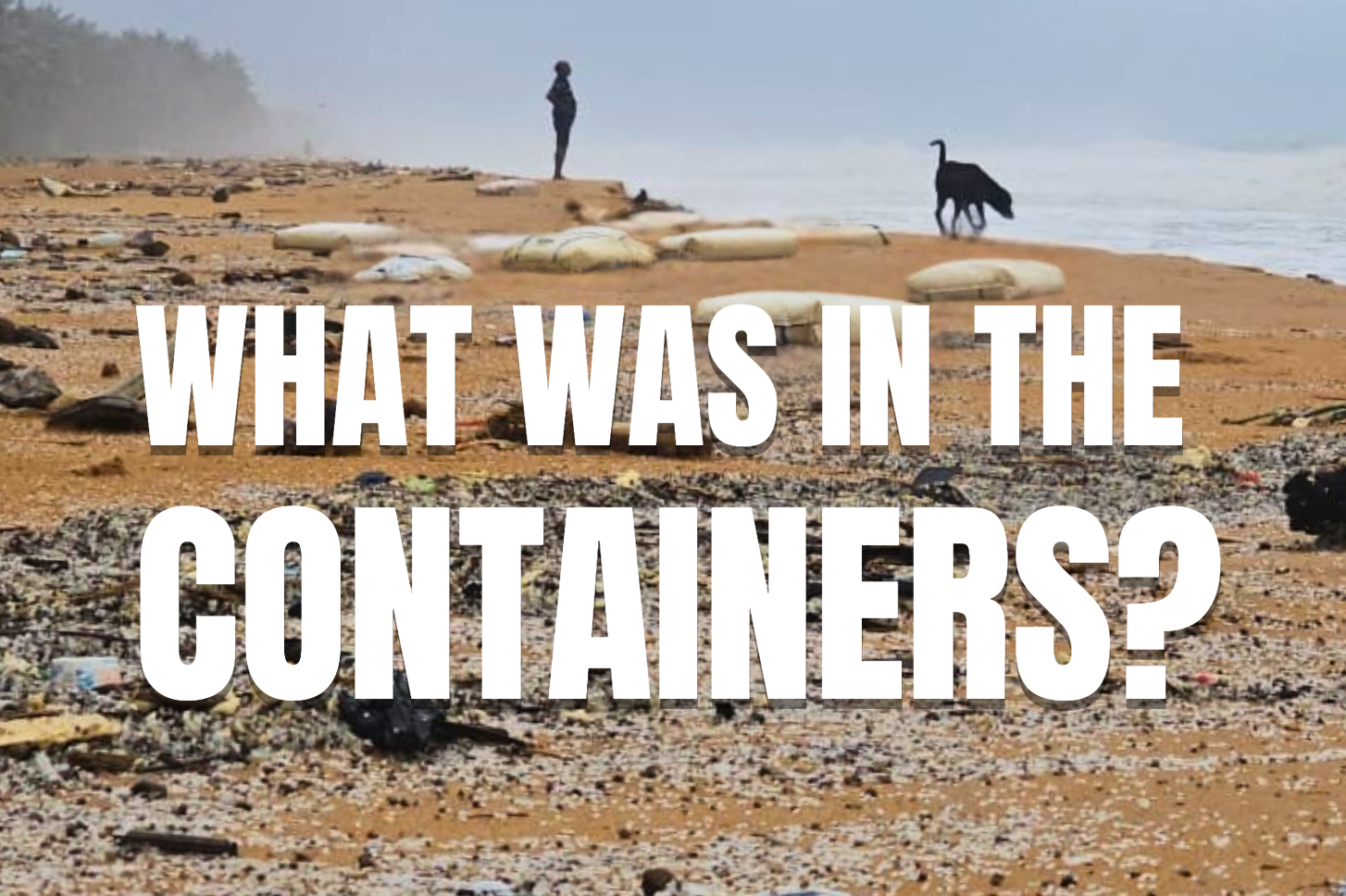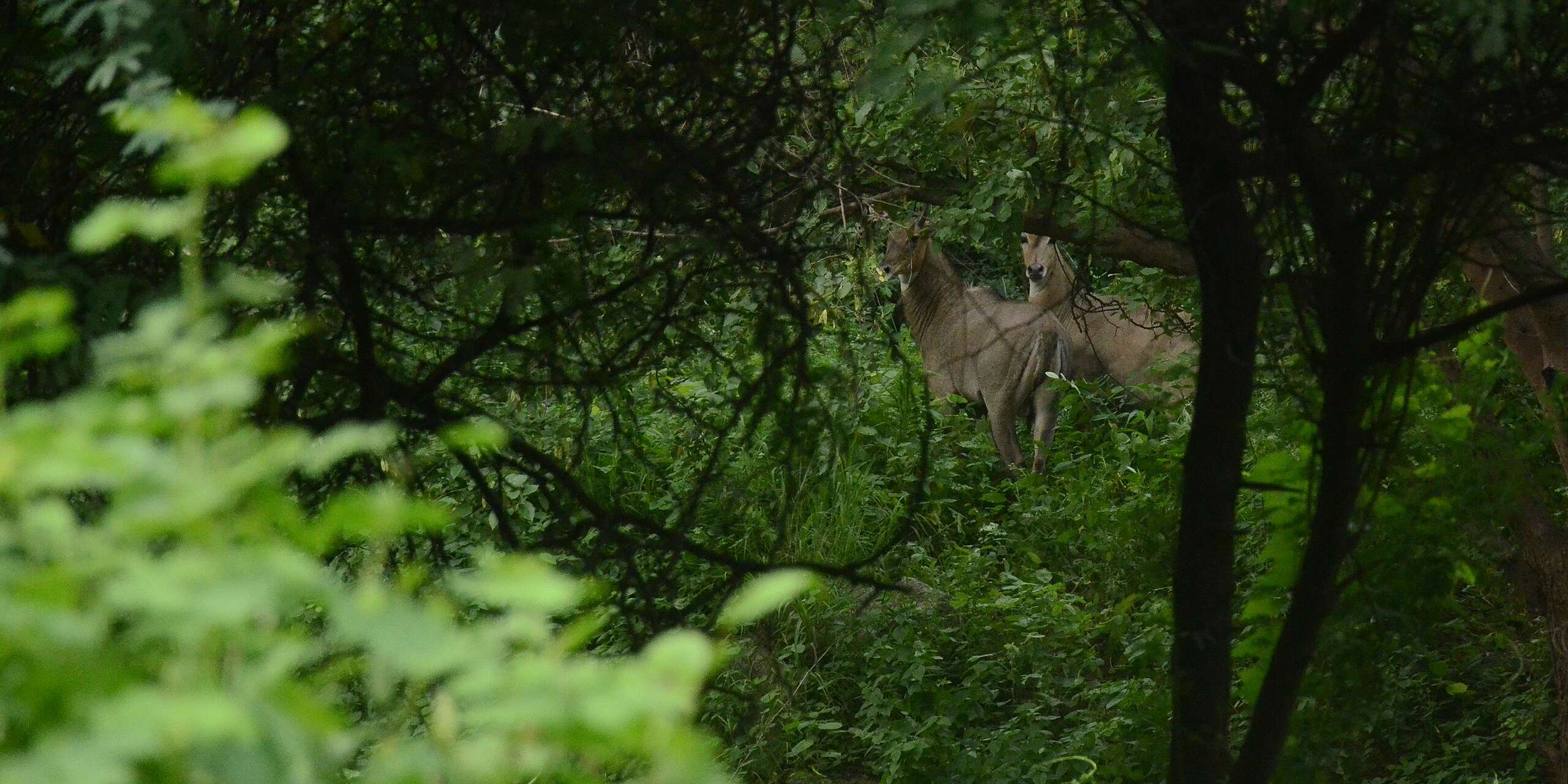Greenpeace and a broad swath of civil society groups in Australia and Europe have successfully prevented solvents and explosives maker Orica from sailing tonnes of extremely harmful chemical waste from Australia to Denmark for incineration. In response to massive public pressure, the Danish Government announced on December 23, 2010 that they wouldn’t accept the shipment after all – just 24 hours before it was due to be loaded with the toxic waste in Australia.

A toxic legacy in Australia
For years Botany Bay, near Sydney, was a major manufacturing base for the chemical firm, ICI. Subsequently, the plant was bought by the Australian company, Orica Pty Ltd (a spin-off of ICI). Orica didn’t only buy the bricks and mortar, they also got the toxic legacy. The Botany site now houses around 16,000 tonnes of the banned carcinogen hexachlorobenzene (HCB), as well as another 45,000 tonnes of poisoned soil.
Underground storage tanks started to crack in the 1980s. And for the past three decades, toxic and carcinogenic chlorinated chemicals have been leeching into the soil. Locals, naturally, are enraged.
In 2006 Orica began a plan to get rid of its HCB waste stockpile, under mounting pressure from local residents and politicians. Handling this sort of waste responsibly is very costly. And though it sustains some jobs in hazardous waste management, companies switching to Clean Production can save money and create more innovative jobs and business opportunities in the process.
Alas, Orica planned to get rid of its toxic problem quite literally – by putting it on a ship and sending it 25,000 km across the oceans to Europe. Far, far away, where somebody else could deal with it.
The Basel Convention, or: Clean up your own waste
The tonnes-of-banned-carcinogens-across-the-world shipment from Australia would not only have been breathtakingly reckless, it would have been illegal too. The Basel Convention on the Control of Transboundary Movements of Hazardous Wastes — which Greenpeace campaigned hard to put in place decades ago — obliges Australia to deal with its own hazardous waste.
HCB waste can only be exported to another OECD country under the exceptional circumstance where there is no technology available in-country to treat and destroy the waste. And the technology is as feasible in Australia as elsewhere.
Germany says “Nein danke!”, Denmark says “Ja!”
So when Orica applied to Germany to ship the hazardous waste there, the German authorities (after much public pressure!) rejected the application citing its international obligations.
Next, Orica’s CEO flew to Denmark to meet with Danish Government officials about the country’s hazardous waste incinerating abilities. Shipping thousands of tonnes of hazardous waste from Australia to Germany or from Australia to Denmark is equally far and equally as dangerous. Still, Danish authorities agreed to participate, and initially authorised 6,100 tonnes of Orica’s HCB to be shipped to a hazardous waste incinerator near Nyborg, a city on Denmark’s central island, Funen.
Hands across the sea (not waste!)
Opposition to the plan from Nyborg residents grew quickly, and so did international solidarity. The next few years saw a coordinated effort of local groups, nature conservation societies, politicians, dock and transport workers in both Australia and Europe continue to grow in numbers and breadth.
Citizens’ and organisations’ voices made themselves heard through media across the world. Even Lebanese TV ran the story in 2010 of “the little Northern European country which delights in burning other peoples’ hazardous waste.”
Civil society’s entire toolbox was brought to bear, including: demonstrations, signature collections, letter-writing to responsible authorities, political meetings and lobbying, as well as nonviolent direct actions and (trade union) industrial action.
On December 2, 2010 the Danish Government bowed to public pressure and officially “postponed a plan” to accept and incinerate the hazardous waste from Australia. 21 days later the Danish Minister for Environment announced that the deal was off:
It is my political assessment that we can not accept the waste. As the situation and the discussion has evolved with considerable political and popular resistance, so it seems totally inconceivable for the ship with HCB waste to arrive in Nyborg. I have informed [Australian Environment Minister] Mr Tony Burke.
(translated from this Government statement)
The story doesn’t end there. Danish authorities and Orica might try something dodgy again in 2011, so we can’t let down our guard.
Rather than ship its waste offshore to Denmark where they’re going to use outdated technology to incinerate the waste and put toxic chemicals into the air, Orica should put in place the technology in Australia and deal with it responsibly.
This article was updated on January 7th to clarify the Danish Government’s decisions on December 2nd and 23rd.




